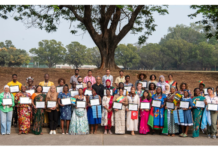Spare the Goose that Lays the Golden egg
The government, in this context, South Africa, should create an enabling economic climate to assist both producers and consumers of food. While there should be no interference with the prices of agricultural inputs and outputs, the economic climate can be made more enabling through tax regulations.
By Eric Peters
As analysts have widely pointed out through various media outlets, the war in Ukraine is already impacting heavily on global food production, due to skyrocketing oil prices and shortage of critical inputs, mainly fertilizer, vaccines and pesticides. This is because Russia and Ukraine are the world’s leading suppliers of fertilizer. Mainly, this is rooted in two factors. On one hand, sanctions from western sanctions bar Russia from exporting to other countries. On the other hand, as a result of the destruction of factory and transport infrastructure, in Ukraine, the production of phosphate has been disrupted. Besides, rising oil prices have sparked an increase in transportation costs, which is reflected on input costs like equipment spare parts and seeds and pesticides.
Unquestionably, the double whammy of inflationary impact of oil prices and scarcity of fertilizer on production requires the urgent intervention of governments. Of course, ultimately, the buck stops with farmers themselves.
Prof Frikkie Maré is Academic Departmental Head: Agricultural Economics at University of the Free State. When asked about his view on the matter, he contends that this is a situation which requires governments to go all-out in sparing the proverbial goose that lays the golden egg: commercial farmers. With reference to South Africa, he states that the government should let market forces dictate, as food producers have to sustain their operation in the long-term.
The precariousness of the current situation is more intelligible when the social, economic and economic implications of food supply shortages, as well as the attendant effect of inflation, on the population are taken into account.
In most developing and least developed countries, citizens – the majority of who can barely eke a living – face the reality of starvation. A familiar trend in history is that high food prices are the trigger for political unrests, which in most cases unseat or destabilise incumbent governments, in countries. And so, with this view in mind, governments may be tempted to pursue populist decisions to intervene through the introduction of unrealistic price control measures on food products. Arguably, on the face of it, these measures may seem well-meant – aimed at lessening the impact of high prices on livelihood. However, empirical evidence suggests that they do not always produce the much desired results.
Unfortunately, in most cases, implementation of politically expedient decisions is always to the detriment of commercial food producers, who, reeling under pressure, are driven out of business. For a textbook case of employing politically convenient decisions to address an economic problem, one does not need to go further than South Africa’s northern neighbour, Zimbabwe, where invasions of white commercial farmers during the era of Robert Mugabe have driven the economy in a rut it cannot get out of. Similarly, classic examples in Africa are a dime and a dozen.
Don’t interfere with markets
Bearing in mind that any envisaged benefits of government price measures of borne unintended consequences in countries in the region, a rational approach is needed. Professor Maré suggests that the government should not directly interfere with markets unless it is absolutely necessary. “The agricultural market in most countries is a price system where both input and output prices are determined by demand and supply. As soon as you interfere with this market by introducing things like price ceilings, equal allocation of resources, etc., the former price system changes to a command system and it is no longer a free market.”
Creating an enabling environment
Alternatively, analysts from AgriSA share the standpoint that the government’s involvement should be in the form of incentives to cushion producers from effects of the current economic conditions. Professor Maré concurs with them entirely. He posits that the government should create an enabling economic climate to assist both producers and consumers of food. “While there should be no interference with the prices of agricultural inputs and outputs, the economic climate can be made more enabling through tax regulations. For example, one of the largest inflation drivers is the price of fuel. Taxes on fuel can be lowered to curb the effect of the fuel price on inflation.”
The buck stops with farmers
In the end, assuming sanity will prevail in the government’s approach, the buck stops with farmers themselves. Farmers should consider production in the short-term. This is because hefty increases in agricultural input have caused the point of optimal production to maximise profit or minimise lost to change. Thus, the new input and output prices should be considered in production economics to determine optimal output levels. In order to tackle this challenge, Professor Maré strongly recommends that farmers consult with a production economist to assist them to plan according to the new price scenario.
The article also appeared in the May/June of Farmers Review Africa 2022








